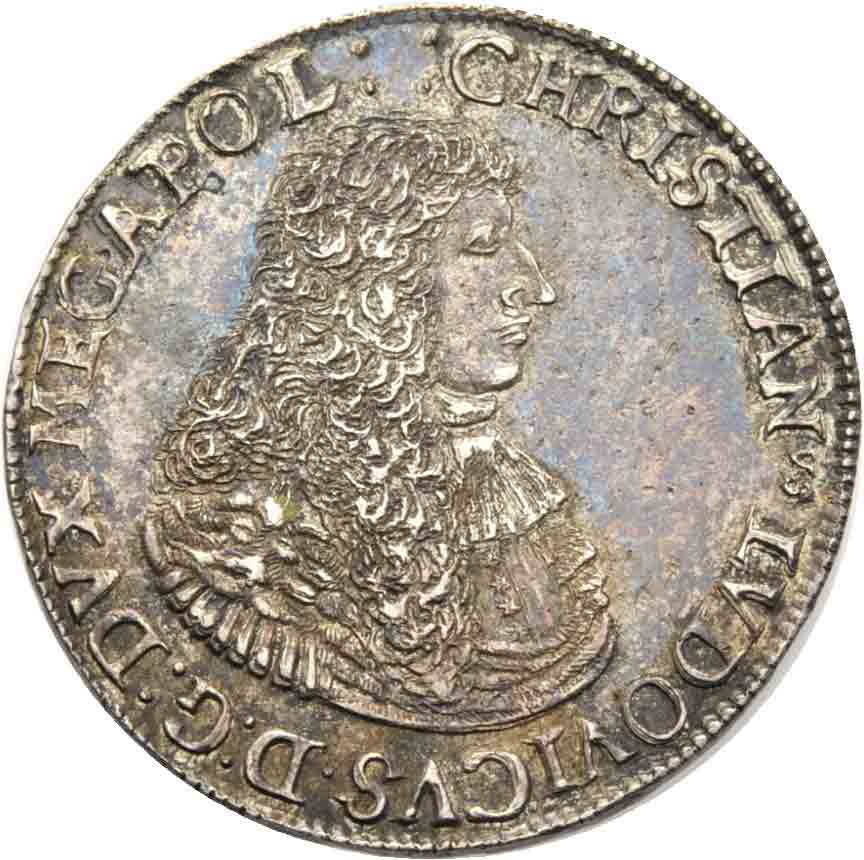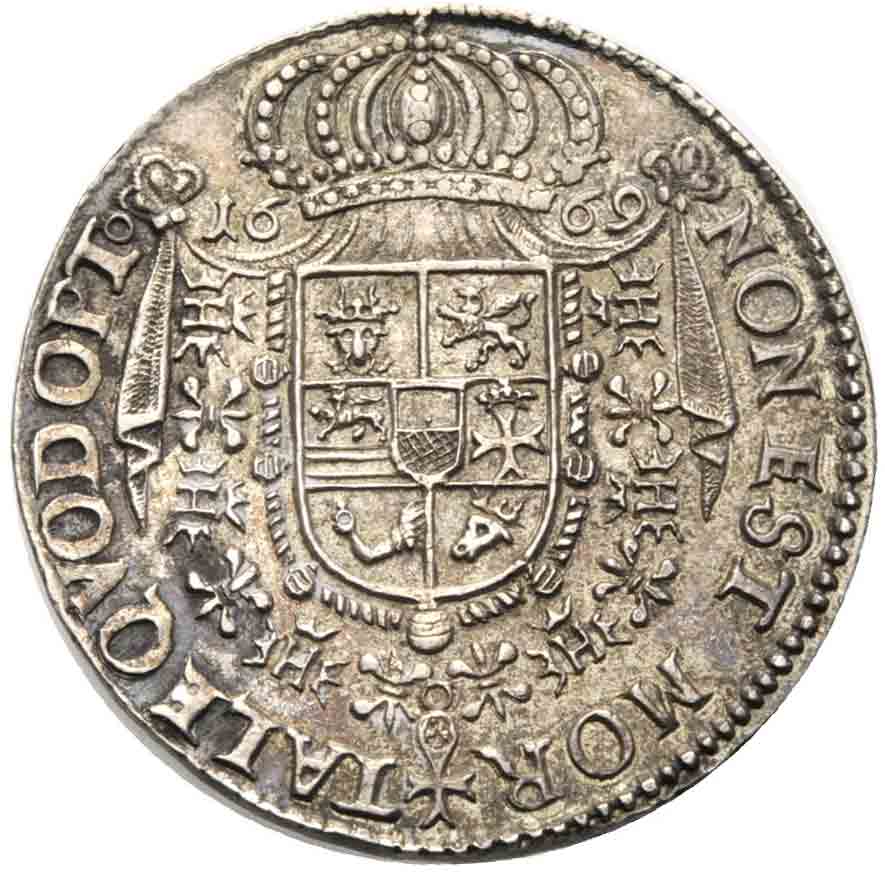|
||||||
| H e r z o g t u m M e c k l e n b u r g [- S c h w e r i n] | ||||||
| Online-Katalog Mecklenburgischer Münzen und Medaillen | ||||||
| Wissenswertes | ||||||
|
|
|
Ovid’s Metamorphoses, Liber II, line 56, which actually reads: “sors tua mortalis, non est mortale, quod optas.” It comes as Phoebus (the Sun) replies to his son Phaethon’s request to have control of his father’s chariot and wing-footed horses for a day. Phoebus replied that he was asking too great a favor, one that is unfitting for his strength and youth. Not even Jupiter, the mighty lord of Olympus can can drive this team of horses. He continues, “sors tua mortalis, non est mortale, quod optas,” that is, “your fate is mortal, what you desire is not mortal.” |
||||
| Die Metamorphosen des Ovid, Buch II, Zeile 56: "sors tua mortalis, non est mortale, quod optas." | ||||||
| Der Sonnengott Phoebus antwortet auf das Begehren seines Sones Phaeton, den Sonnenwegen mit den geflügelten Pferden für einen Tag zu lenken. Er erwidert auf seinen Wunsch, dass ein solches Ansinnen zu gefahrvoll für seine Jugend und Kraft sei. Selbst Jupiter, der Gottvater auf dem Olymp vermag nicht dieses Gespann zu lenken. Dir ward sterblich Los; doch sterblich ist nicht dein Bestreben. | ||||||
|
|
||||||


